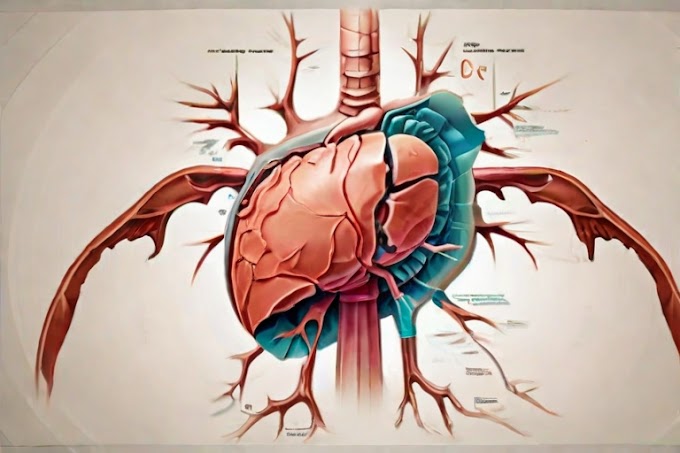Discover the intricacies of "what is cancer" as we delve into its types, causes, symptoms, and treatment options. Uncover FAQs, living with cancer insights, and the latest research developments. Explore the world of cancer with expert guidance.
Introduction
Cancer, a term that elicits both fear and curiosity, is a complex ailment affecting millions worldwide. In this comprehensive guide, we'll navigate through the labyrinth of information surrounding cancer, shedding light on its nature, causes, and treatments.
Types of Cancer
Carcinomas
Carcinomas, the most prevalent cancer type, originate in epithelial cells. They commonly affect organs like the skin, lungs, breast, and pancreas, showcasing the diversity of this disease.
Sarcomas
Sarcomas emerge in connective tissues, including bones and muscles. While relatively rare, their impact can be profound, necessitating specialized treatments.
Leukemias
Leukemias target the blood and bone marrow, leading to abnormal white blood cell production. Understanding the distinct nature of leukemias is crucial for accurate diagnosis and treatment.
Lymphomas
Lymphomas affect the lymphatic system, impacting immune functions. With various subtypes, lymphomas demand tailored approaches for effective management.
What is Cancer?
Cellular Abnormalities
At its core, cancer manifests through cellular abnormalities, where genetic mutations drive cells to uncontrollably divide. Understanding these anomalies is key to deciphering the essence of cancer.
Uncontrolled Growth
The hallmark of cancer is uncontrolled cell growth, forming tumors that can infiltrate surrounding tissues. Delving into this aspect unveils the challenges posed by unchecked proliferation.
Metastasis
Cancer's ability to metastasize, spreading to distant organs, defines its severity. Examining how metastasis occurs provides insights into devising targeted therapies.
Causes of Cancer
Genetic Factors
Genetic predispositions can elevate the risk of cancer. Exploring familial connections and inherited mutations helps in understanding and managing this aspect.
Environmental Factors
Environmental triggers, such as exposure to carcinogens, play a pivotal role. Identifying and mitigating these factors are crucial steps in cancer prevention.
Lifestyle Choices
Unhealthy lifestyle choices, including poor diet and smoking, contribute significantly. Promoting positive habits is integral to reducing cancer risks.
Symptoms
Fatigue
Persistent fatigue often accompanies cancer, signaling the body's struggle. Recognizing this symptom aids in early detection and intervention.
Unexplained Weight Loss
Unexplained weight loss can be a red flag for various cancers. Exploring the link between weight fluctuations and cancer is vital for timely diagnosis.
Persistent Pain
Chronic pain, often localized, is a common symptom. Understanding the nuances of cancer-related pain assists in tailored pain management strategies.
Diagnosis
Biopsy
Biopsies, through tissue examination, provide definitive cancer diagnoses. Unraveling the biopsy process demystifies its role in determining treatment paths.
Imaging Tests
Various imaging techniques, from X-rays to MRIs, aid in visualizing tumors. Grasping the nuances of these tests enhances diagnostic accuracy.
Blood Tests
Blood tests offer valuable insights into cancer markers. Exploring the role of blood tests in cancer diagnosis provides a comprehensive view.
Treatment Options
Surgery
Surgery remains a cornerstone in cancer treatment, removing tumors and affected tissues. Understanding the surgical options available is crucial for informed decision-making.
Chemotherapy
Chemotherapy, though often associated with side effects, is a potent tool in cancer treatment. Exploring its mechanisms and variations broadens our perspective.
Radiation Therapy
Precise and targeted, radiation therapy aims to eradicate cancer cells. Unpacking the intricacies of this treatment unveils its role in comprehensive cancer care.
Immunotherapy
Harnessing the body's immune system to combat cancer is a revolutionary approach. Investigating immunotherapy sheds light on its transformative potential.
Living with Cancer
Emotional Support
Navigating the emotional challenges of cancer requires robust support systems. Examining the role of emotional support in the journey empowers patients and their loved ones.
Lifestyle Changes
Adopting a healthy lifestyle during and after cancer treatment is paramount. Understanding the significance of lifestyle changes enhances the overall well-being of cancer survivors.
Read More about Cancer Symptoms
FAQs
Q 1. Is cancer contagious? Cancer is not contagious. It results from genetic mutations and environmental factors, not from exposure to an affected individual.
Q 2. Can cancer be prevented? While not entirely preventable, adopting a healthy lifestyle, avoiding carcinogens, and regular screenings can significantly reduce the risk of cancer.
Q 3. How is cancer staged? Cancer staging involves assessing the extent of its spread. The process helps determine the most appropriate treatment plan for the individual.
Q 4. What is the success rate of cancer treatments? Success rates vary based on cancer type and stage. Advances in treatments continually improve outcomes, offering hope to many.
Q 5. Are there alternative therapies for cancer? Complementary therapies, such as acupuncture and herbal remedies, may aid in symptom management. However, they should complement, not replace, conventional treatments.
Q 6. Can stress cause cancer? While stress doesn't directly cause cancer, it may impact the immune system. Maintaining stress levels is essential for overall well-being.
Conclusion
In the ever-evolving landscape of cancer research and treatment, hope shines brightly. Advances in understanding, diagnosis, and therapies propel us toward a future where cancer's grip weakens. As we stand united against this formidable foe, the journey towards conquering "what is cancer" continues, fueled by resilience, innovation, and unwavering optimism.






